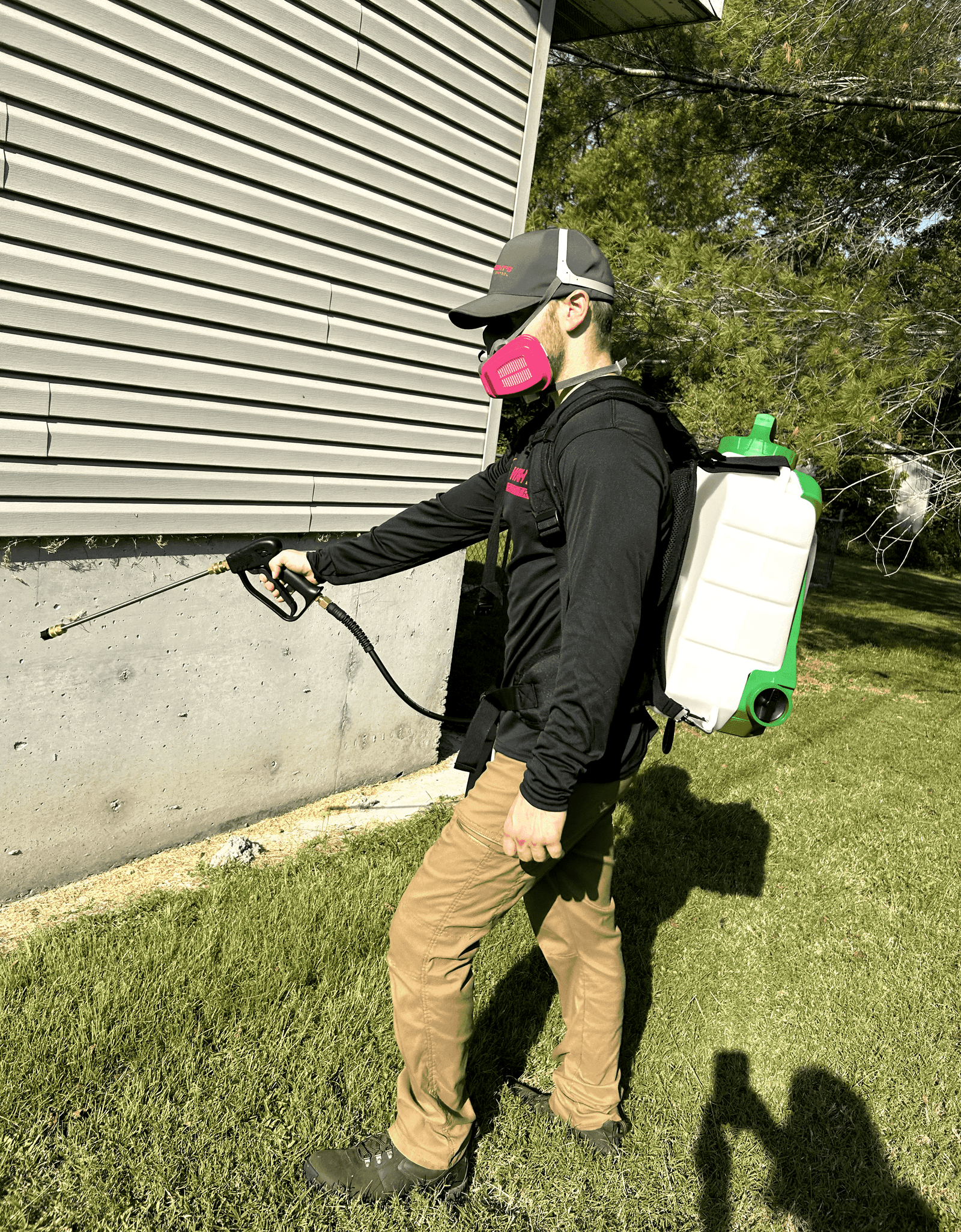Fleas Pest control
starting at $40/ month

Get More Information

we will not share or spam you
- Average rating of 5 out of 5 stars from reviews.

Wright’s Pest Control
- Family owned and operated
- Southern Illinois pest knowledge
- Effective Solutions
- Fast Customer Service
Contact us today!

What Our Customers Are Saying
EXCELLENTTrustindex verifies that the original source of the review is Google. Excellent service and great value! Recently called Ryan for a last minute general pest control service. He was able to get us in the next day and showed up on time. He was professional, knowledgeable, and very thorough. What stood out the most was the price. He offered the best value by far. Highly recommend!Posted onTrustindex verifies that the original source of the review is Google. Shows up at scheduled time. Super competitive rates. Courteous and efficient. Couldn't be more pleased!Posted onTrustindex verifies that the original source of the review is Google. Ryan saved my day, today! Had a wasp issue while pressure washing my house. Called 'spur of the moment' and he fit me in his schedule THE same day! What a job he did! Above and beyond what I expected! Very personable! Would highly recommend!Posted onTrustindex verifies that the original source of the review is Google. Fantastic Service! Ryan was very professional and quick to get an appointment time!! Would 100% recommend!Posted onTrustindex verifies that the original source of the review is Google. Great service, I recommend to anyone with a pest problemPosted onTrustindex verifies that the original source of the review is Google. Ryan did a great job spraying at our rental properties! He was very thorough. We had our tenants call us to say how great he was. I would highly recommend Ryan!
Get rid of Fleas today by calling our Southern Illinois Fleas Experts
Call Us at 618-309-3885 or contact us online now!
Fleas are not only bothersome but can also transmit diseases and cause allergic reactions in both humans and pets in Southern Illinois. Flea bites may result in itchy, red welts and, in severe cases, even contribute to dermatitis or secondary infections. Given the variety of flea species and their adaptability, they can thrive in various environments, making it crucial to address infestations Quickly. Whether they infest indoor spaces or linger in outdoor areas, fleas require immediate attention. If you’re dealing with a flea problem, don’t hesitate to reach out for professional assistance today!
Fleas Species In Southern Illinois
Fleas in Southern Illinois
The cat flea, known for its resilience, surpasses the other species in survival skills, persisting for extended periods. After a blood meal, these fleas efficiently mate and reproduce, with females laying eggs that can hatch within two to twelve days. A single female cat flea can produce a staggering 500 or more eggs in her short lifespan, leading to bites on people and pets. Those allergic to flea saliva may experience prolonged itching even after the fleas are eliminated.
Although they do not have wings, cat fleas employ their powerful hind legs for jumping onto hosts or evading DIY extermination attempts. Their spiny features facilitate attachment to hosts, while their eggs may detach and embed in carpets and flooring.
Fall is the most common time for flea infestations, as the temperature and humidity create ideal conditions, especially when leaves are raked into piles. Seeking shade, fleas find refuge on pets, transferring into homes, including rugs, blankets, and upholstered furniture.
Interestingly, homes can harbor cat fleas even without feline residents; they can affect both cats and dogs. Fleas, especially cat fleas, remain active year-round, surviving extreme temperatures by going dormant. Their resilience, allowing them to endure for two months without nourishment, heightens their eagerness to feed on people and pets whenever the opportunity arises.
Diseases Caused by Fleas
The presence of fleas, particularly in cats and dogs, can have severe health implications. Female fleas can consume 15 times their body weight in blood which may lead to low iron levels and even anemia in small animals when infestations are significant.
Adding to the health risks, some fleas carry tapeworm larvae. When pets lick and clean themselves, they can inadvertently swallow infected fleas, introducing tapeworms into their bodies. These parasites attach themselves to the pet’s intestinal walls, growing by feeding off the animal.
Fleas can also transmit cat scratch fever from infected cats to humans. Symptoms in people include fever, exhaustion, headaches, lack of appetite, and swollen, tender lymph nodes near the bite. Though rare, complications can be serious.
Fleas can also carry bubonic plague, presenting symptoms similar to cat scratch fever initially. If not diagnosed and treated effectively, the bacteria can spread inside the body, leading to septicemic or pneumonic plague. Septicemic plague can cause shock and organ failure, while pneumonic plague, infecting the lungs, is almost always fatal if not treated quickly. Preventing fleas from entering your Southern Illinois home is essential to safeguard the health of your family and pets.
How To Prevent Fleas
- Consistent cleaning practices: Regularly vacuum your carpets, sweep floors, utilize upholstery attachments for furniture, and wash bedding frequently to eliminate fleas and deter further egg-laying.
- Prevent rodents: fleas can live on rodents so it’s vital to keep rats and mice outdoors. Seal openings, even as small as a quarter, through caulking and weatherstripping around doors and windows to prevent rodent entry.
- Yard Maintenance: Maintain a well-mown yard, trim tree branches 18 inches from the home, and address standing water. Remove weeds, reduce overgrown bushes. Install a fence.
- Pet Treatment: Regularly wash your pets’ bedding, clothing items, and plush toys. Check their coats for fleas after outdoor activities, bathe them as needed, and consult your veterinarian for flea control and preventative strategies.

